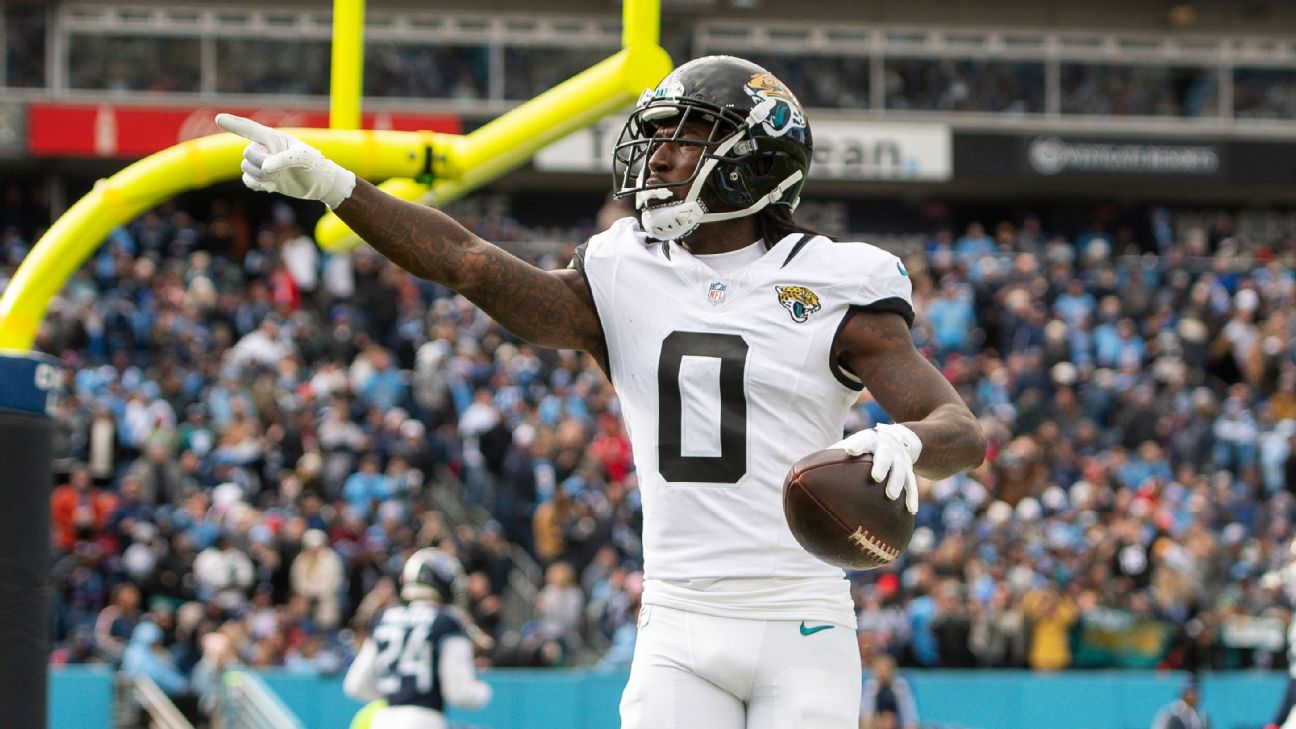NASHVILLE, Tenn. — The Tennessee Titans have made a resounding statement this offseason, emphasizing their commitment to revamping and modernizing the team’s offensive playbook. The headline-grabbing acquisition of Calvin Ridley from the Jacksonville Jaguars not only injects a much-needed playmaking dynamo into the Titans’ roster but also strategically disarms a key AFC South rival. This move underscores the forward-thinking approach of Titans’ new head coach Brian Callahan and general manager Ran Carthon, signaling a decisive pivot from the team’s erstwhile run-first philosophy.
The departure of Pro Bowl running back Derrick Henry to the Baltimore Ravens marked the end of an era for the Titans, heralding a shift towards a more versatile and dynamic offensive strategy. Despite this, the Titans’ intention to utilize the run in strategic scenarios remains intact, as evidenced by the acquisition of Tony Pollard, whose rushing prowess ranked 12th last season with 1,005 yards. However, Callahan’s sights are firmly set on elevating the Titans’ aerial attack, a sentiment echoed in his assertion that “the teams that win the most games are generally the teams that pass the ball the best.”
Enter Will Levis, the Titans’ ambitious second-year quarterback, whose penchant for pushing the ball downfield has already made waves within the league. Levis, who boasts a league-leading 10.3 average air yards per attempt, is poised to find an electric ally in Ridley. Ridley’s exceptional ability to stretch the field and challenge defenses on the perimeter, where he ranked fifth in the NFL in receiving yards, complements Levis’s aggressive throwing style and offers a tantalizing glimpse into the Titans’ revamped offensive strategy.

The pairing of Ridley with DeAndre Hopkins, another accomplished receiver in the Titans’ arsenal, heralds a formidable duo capable of wreaking havoc on opposing secondaries. This marks the first time since 2004 that the Titans will commence a season with two receivers who each concluded the previous year with over 1,000 yards. The strategic signing of Ridley, coupled with the bolstering of the offensive line through the addition of former Denver Broncos center Lloyd Cushenberry, demonstrates the Titans’ comprehensive approach to overhauling their offense.
Ridley’s arrival in Nashville does more than just promise an enhancement of the Titans’ passing game; it significantly alters the team’s draft calculus. With the receiver position now less of a pressing concern, the Titans can redirect their focus towards fortifying other areas of need, particularly the offensive line. This shift in strategy, underscored by the potential selection of a tackle in the upcoming draft, showcases the Titans’ methodical approach to building a balanced and formidable team.
The Titans continue to strengthen their roster through strategic free agency acquisitions and astute draft selections, leading to a heightened anticipation for the forthcoming season. The arrival of Calvin Ridley not only elevates the Titans’ offensive potential but also signals a bold new chapter in the team’s pursuit of success. With a revamped offense poised to take the field, the Titans stand ready to challenge the conventions of the AFC South and embark on a quest for glory that promises to captivate and enthuse fans and foes alike.
Related posts:
What will WR Calvin Ridley mean for the Titans’ offense?
What will WR Calvin Ridley mean for the Titans’ offense?
What the Calvin Ridley signing means for Titans’ draft plans




